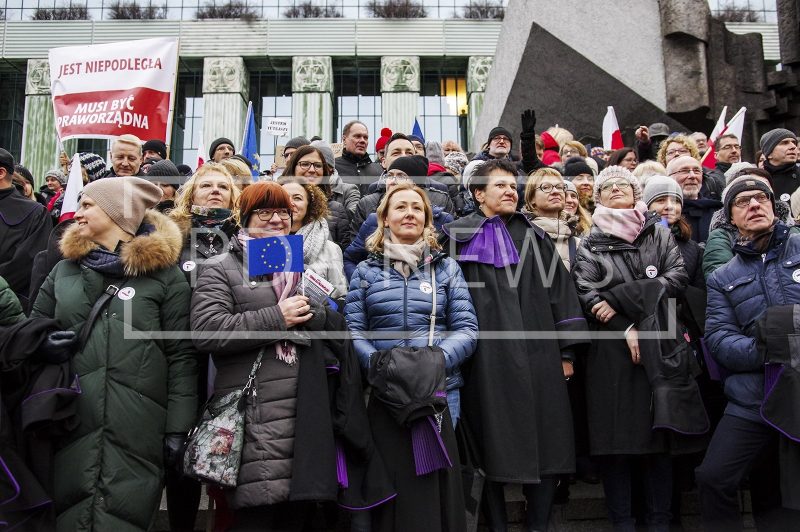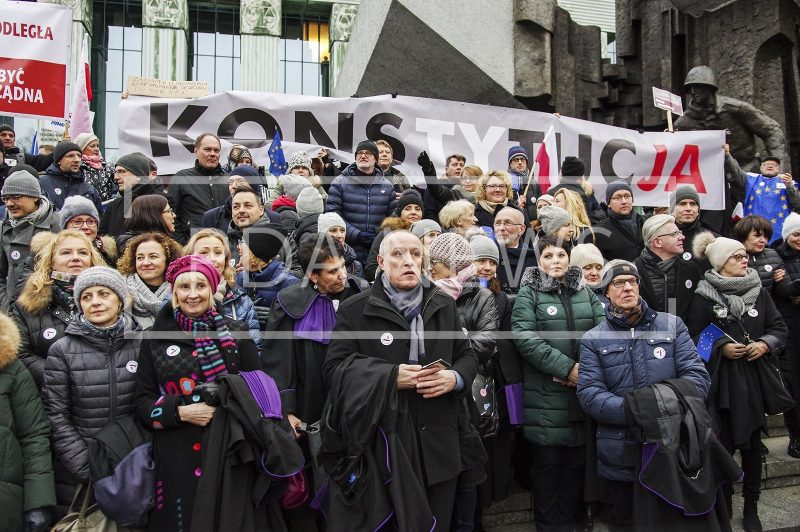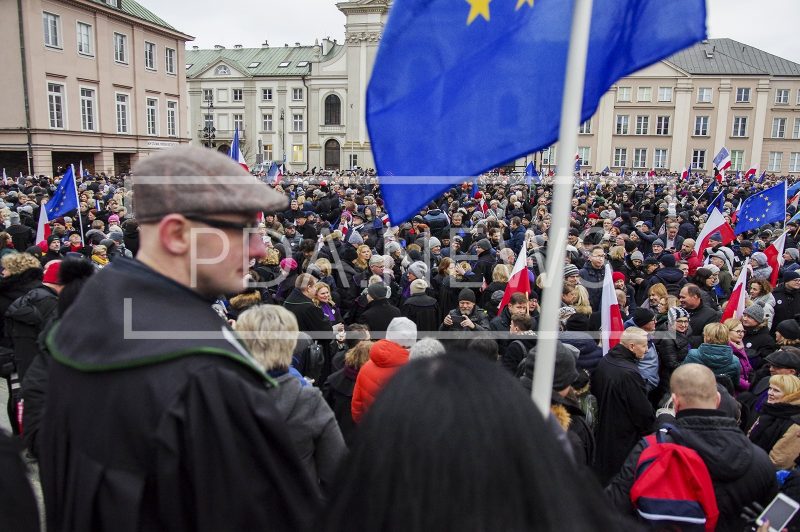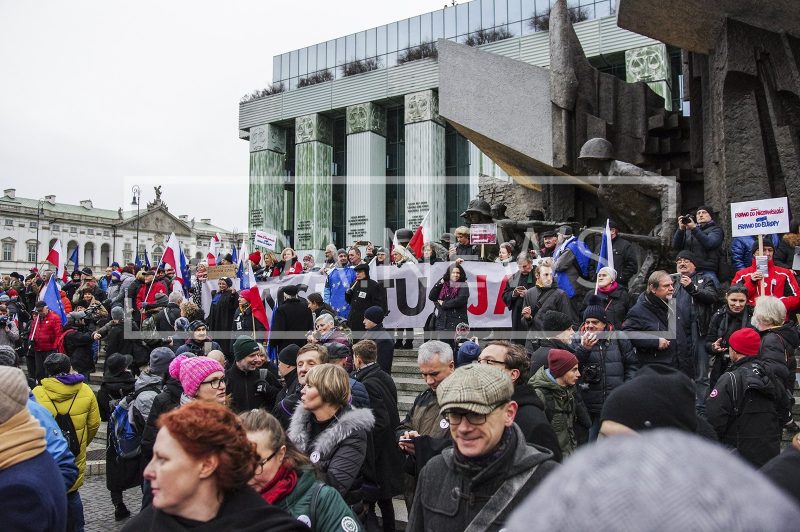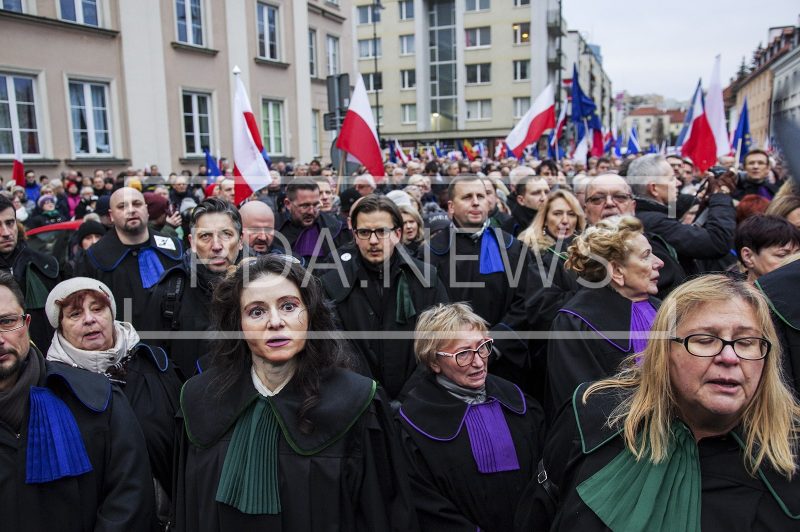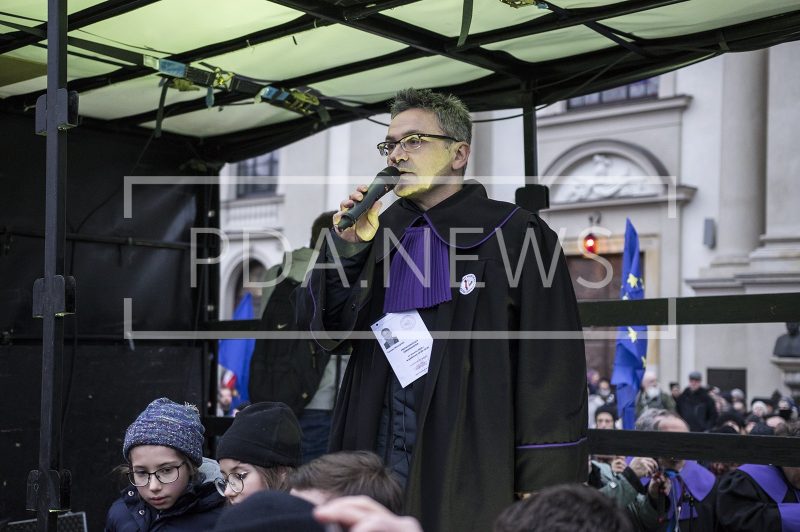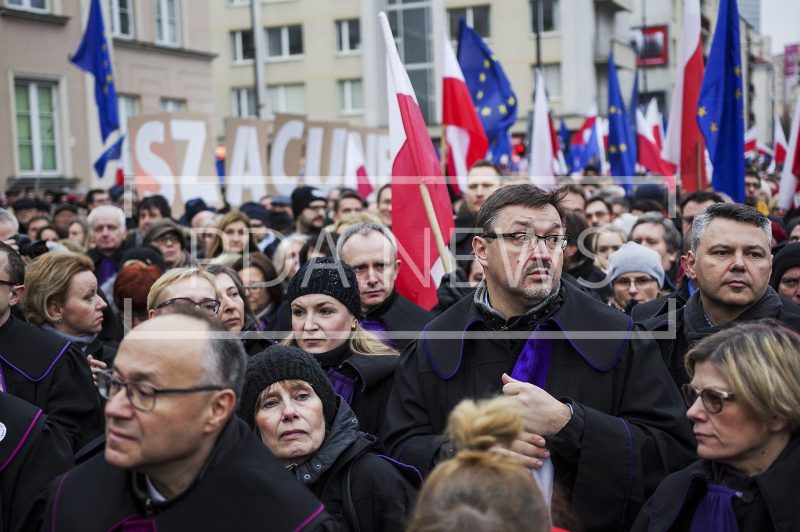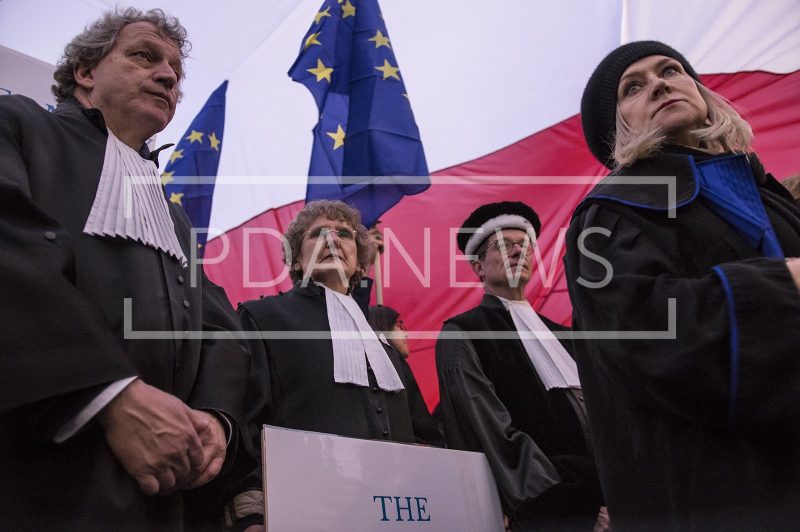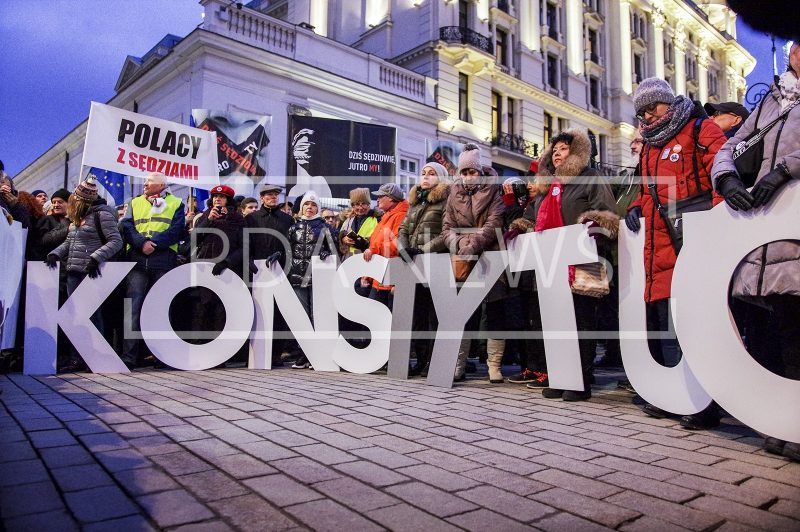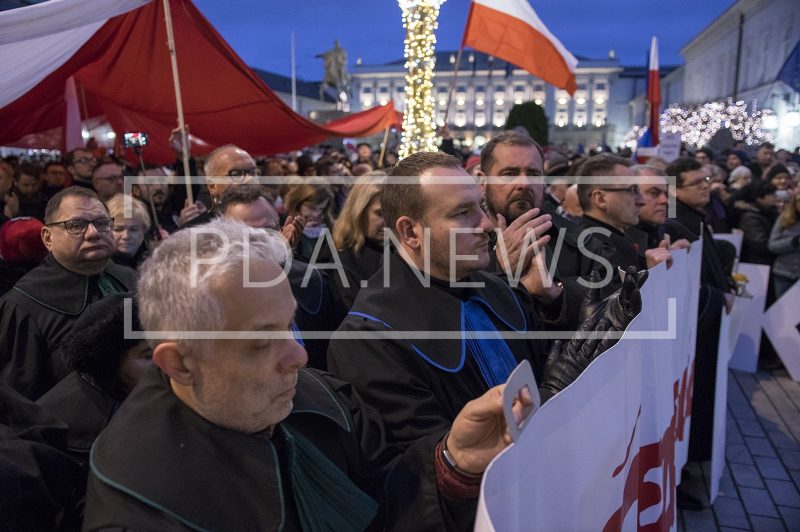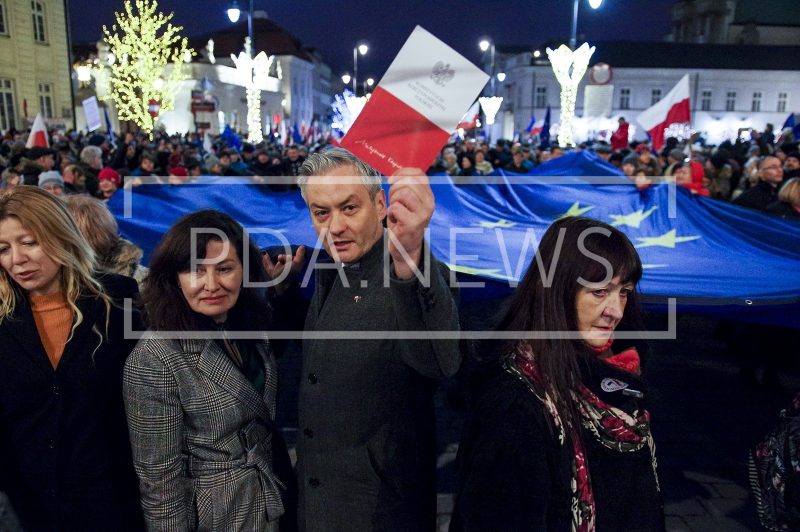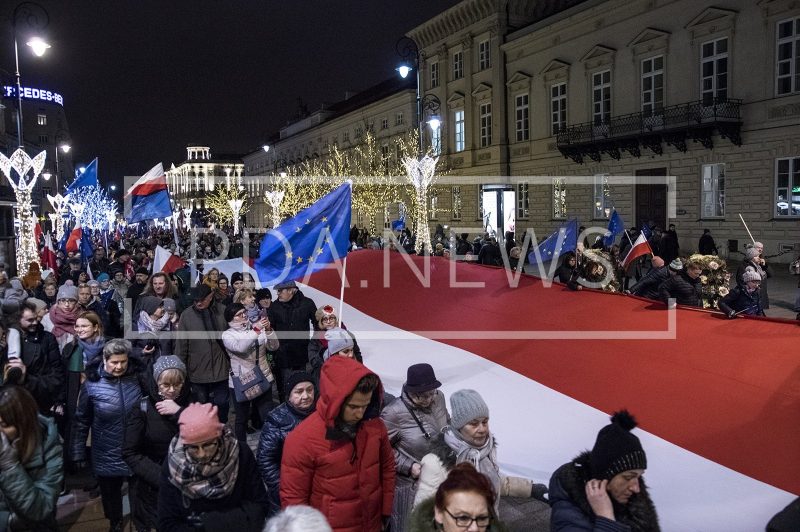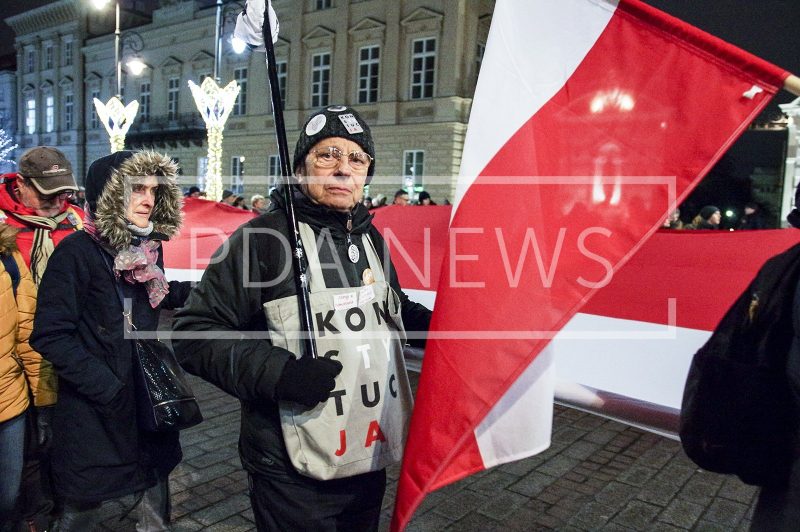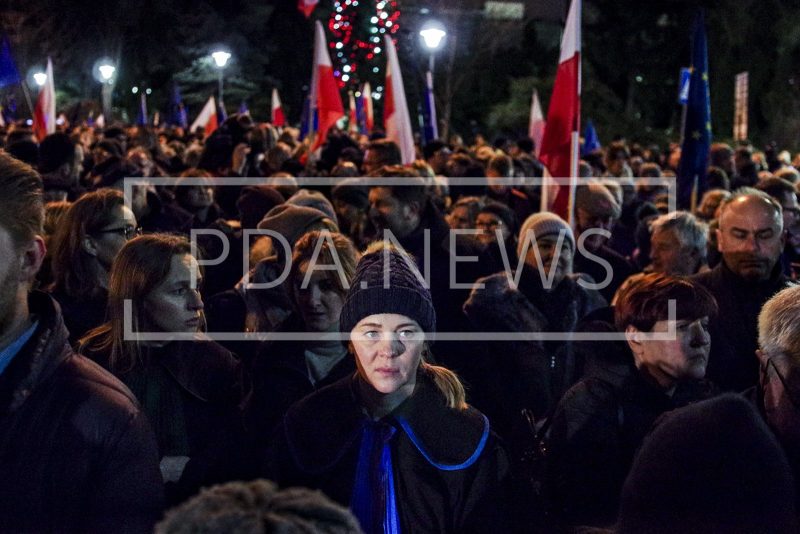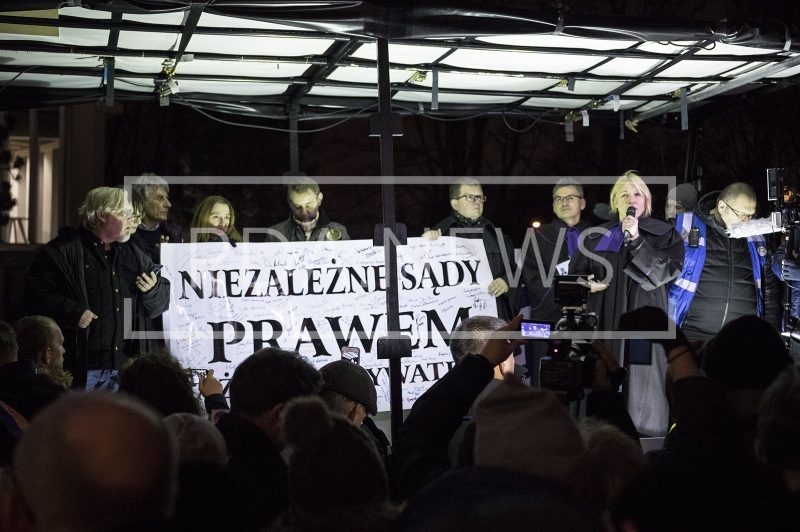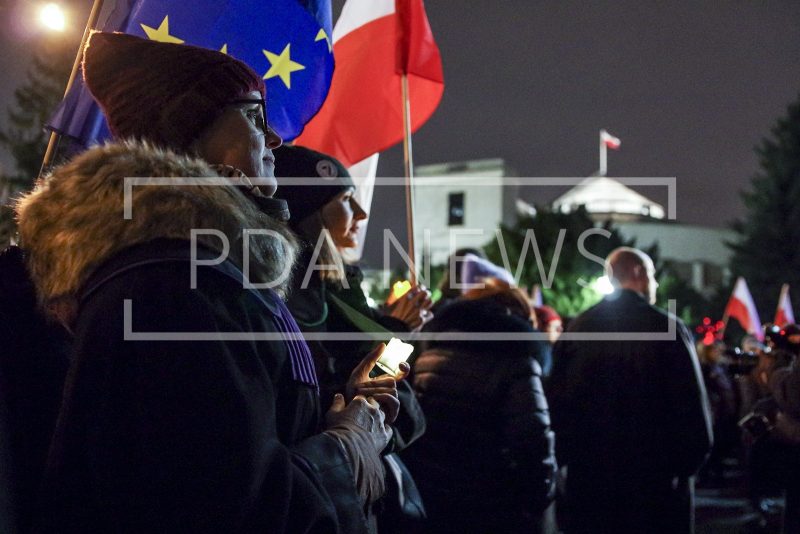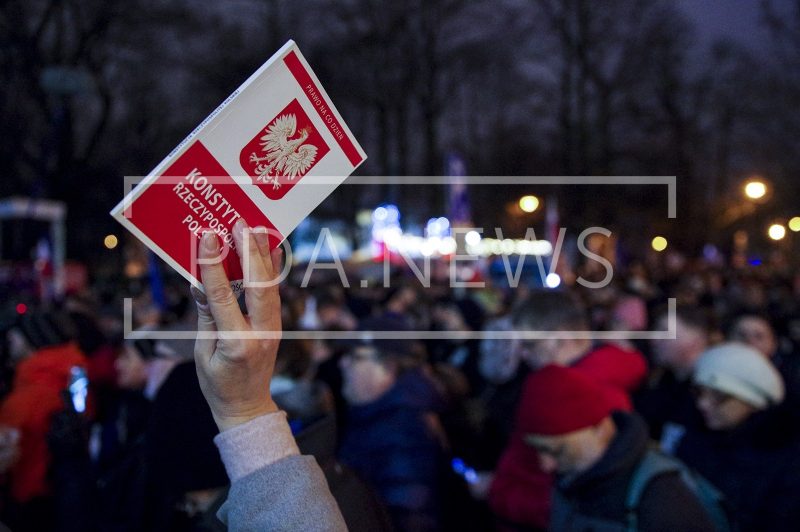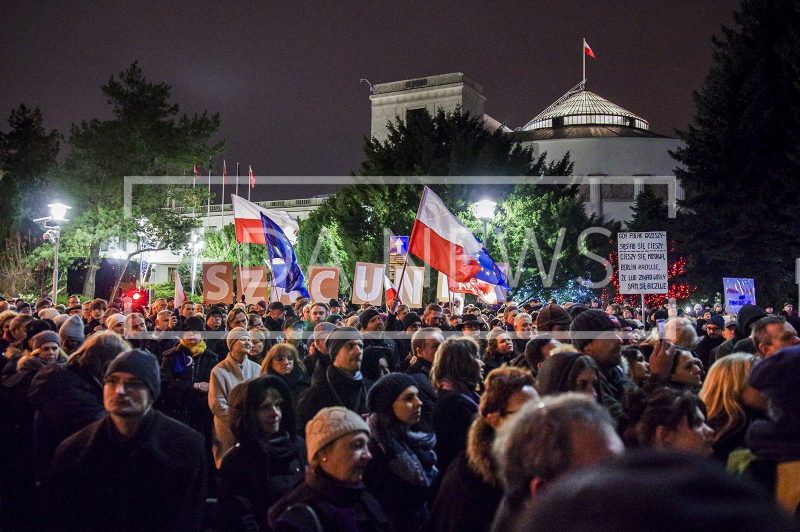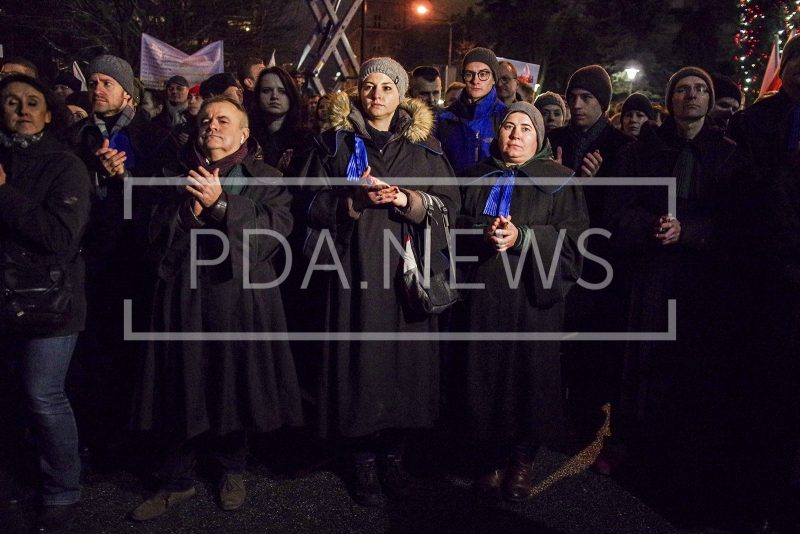MP03: “Thousand Robes March”
Place: Warsaw, Poland
Date: 2020.01.11
One of the main reasons for the “Thousand Robes” March was passed by the Sejm on December 20, 2018, the so-called “muzzle law”. It introduced disciplinary liability of judges for acts or omissions that may prevent or significantly impede the functioning of the judiciary, for actions questioning the effectiveness of the appointment of a judge and for “public activities incompatible with the principles of independence of courts and judges”.
“There was an intensification of activities of disciplinary commissioners, the campaign of slander against judges intensified, there were unprecedented attacks by representatives of the executive power against the First President of the Supreme Court and Supreme Court Judges, and finally – the adoption by the Sejm on December 20 of the law, which is to limit the freedom of speech judges and punish them severely in a very discretionary manner “- indicate the organizers.
The march was held under the slogan “Right to Independence, Right to Europe”. Judges from all over Poland took part in the march, and they were also supported by lawyers, legal advisers, prosecutors and citizens. Judges from: Austria, Croatia, Denmark, Estonia, Greece, the Netherlands, Ireland, Germany, Norway, Portugal, Romania, Hungary and Italy also came to Warsaw. The “Thousand Robes” march started from the Supreme Court, headed towards the Presidential Palace, the protest ended in front of the Sejm of the Republic of Poland.
The law on the system of common courts, also called by some media and politicians the “muzzle”, “disciplining” or “repressive” law, entered into force on February 14, 202
Jednym z głównych powodów Marszu „Tysiąca Tóg” była uchwalona przez Sejm 20 grudnia 2018r, tzw. ustawa kagańcowa. Wprowadziła ona odpowiedzialność dyscyplinarną sędziów za działania lub zaniechania mogące uniemożliwić lub istotnie utrudnić funkcjonowanie wymiaru sprawiedliwości, za działania kwestionujące skuteczność powołania sędziego oraz za „działalność publiczną niedającą się pogodzić z zasadami niezależności sądów i niezawisłości sędziów”.
“Nastąpiło natężenie działań rzeczników dyscyplinarnych, nasilała się kampania oszczerstw wobec sędziów, pojawiły się bezprecedensowe ataki ze strony reprezentantów władzy wykonawczej na Pierwszą Prezes Sądu Najwyższego i Sędziów Sądu Najwyższego, a wreszcie – przyjęcie przez Sejm w dniu 20 grudnia ustawy, które ma ograniczać swobodę wypowiedzi sędziów i karać ich surowo w sposób bardzo uznaniowy” – wskazują organizatorzy.
Marsz odbył się pod hasłem „Prawo do niezawisłości, prawo do Europy”. W marszu wzięli udział sędziowie z całej Polski, wsparcia udzielili im także adwokaci, radcy prawni, prokuratorzy i obywatele. Do Warszawy przyjechali również sędziowie z: Austrii, Chorwacji, Danii, Estonii, Grecji, Holandii, Irlandii, Niemiec, Norwegii, Portugalii, Rumunii, Węgier, Włoch. Marsz „Tysiąca Tóg” wyruszył spod Sądu Najwyższego, kierując się w stronę Pałacu Prezydenckiego, protest zakończył się pod Sejmem RP.
Ustawa o ustroju sądów powszechnych, zwana też przez część mediów i polityków ustawą „kagańcową”, „dyscyplinującą” lub „represyjną” weszła w życie 14 lutego 2020.









